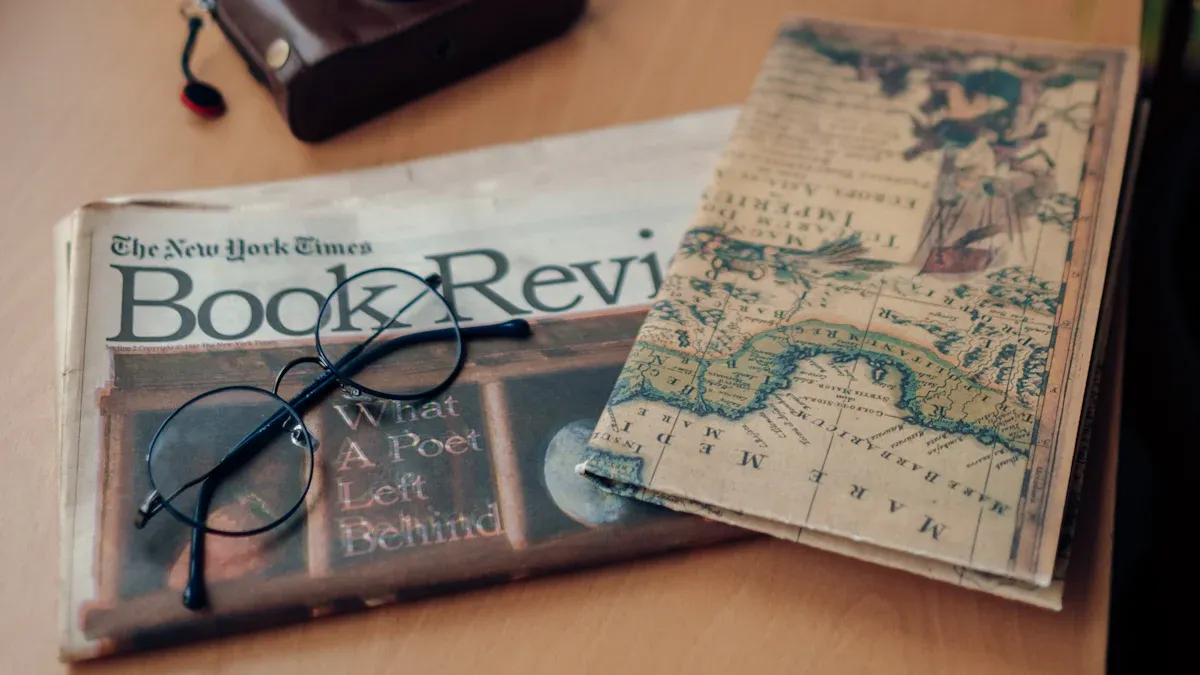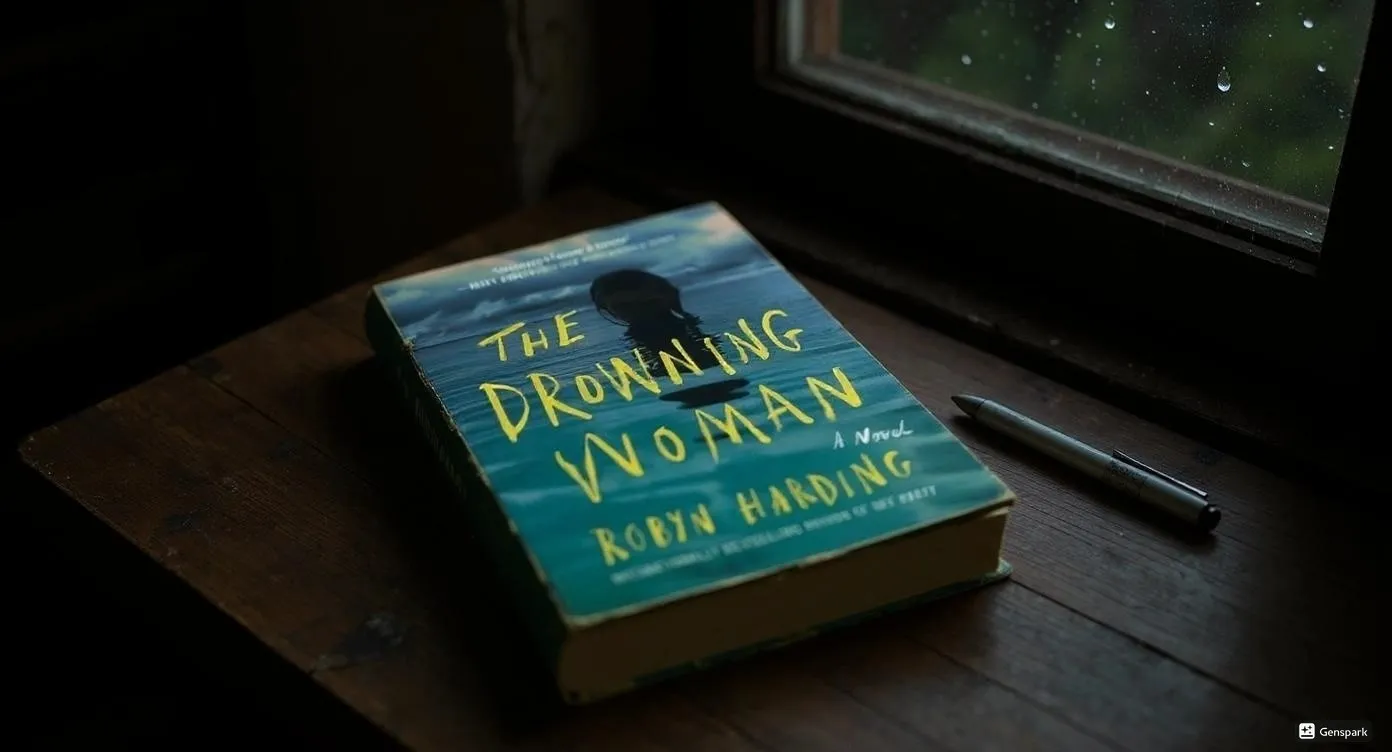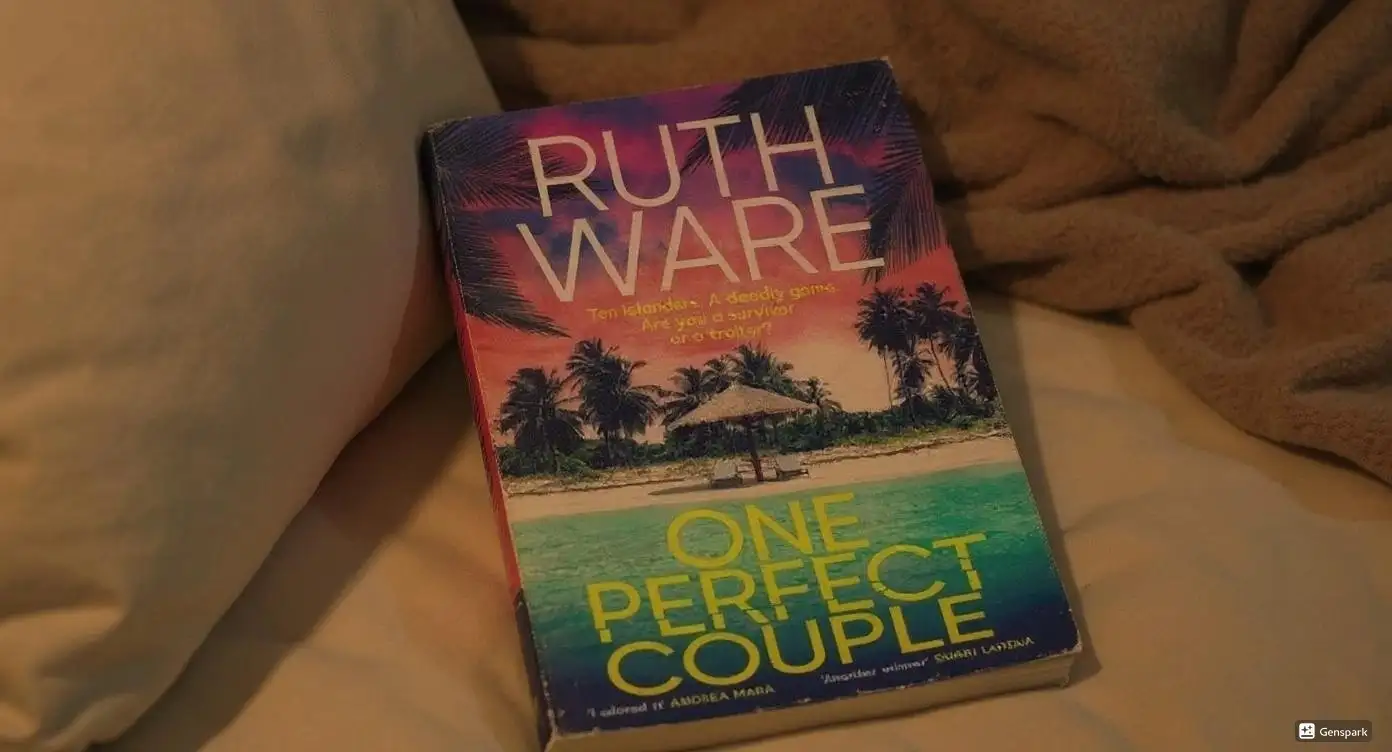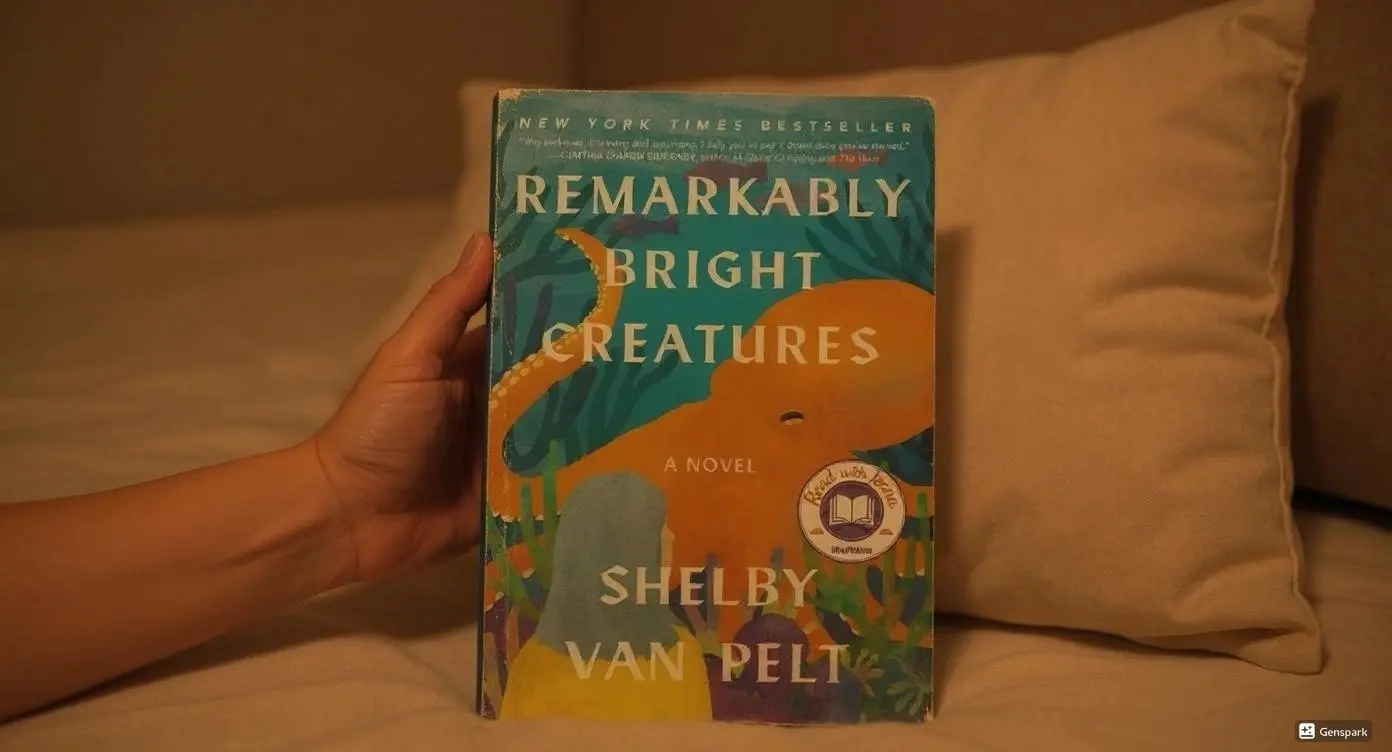I’ll be honest, The Listeners by Maggie Stiefvater begins with a confession. I read this book in bed until my eyes hurt and my tea got cold. The story puts you in a WWII-era American resort. The air there feels full of secrets. The main character’s choices feel heavy, like the warm night.
The story moves slowly and feels dreamy. The magical realism and rich setting pulled me in. If you like getting lost in a world that feels real and a bit magical, you will find something special here.
Key Takeaways
The Listeners is a slow story set in a WWII-era American resort. It mixes historical fiction with a little magical realism.
The main character is interesting and easy to relate to. She faces hard choices while running the resort and its secret magical springs. The book has many details and strong writing. This helps readers feel like they are inside the story.
The book talks about tough choices, self-control, and how to handle people. These ideas make readers think about real life. The writing is smooth and feels warm. It makes you want to read slowly and think, not rush for action or big surprises.
People who like quiet stories about characters, with history and magic, will enjoy this book. The slow speed and deep ideas might be hard for those who like fast and simple stories.
The Listeners is special because it mixes different styles in a grown-up way. It gives a new experience compared to Stiefvater’s earlier YA books.
Overview
This book pulled me in with its strange, almost haunting atmosphere. The setting? A grand old American resort during World War II. The main character runs the place, but it’s not your average hotel gig. She has to host diplomats from the Axis powers—yes, the actual enemy—while keeping the peace, the secrets, and the magical springs hidden beneath the surface.
The conflict in The Listeners by Maggie Stiefvater feels heavy and real. The protagonist faces impossible choices. She must balance her own morals with the demands of her job and the safety of her staff. The magical springs add a layer of mystery. They aren’t flashy or over-the-top. Instead, they feel like something you might stumble across in the woods behind your grandma’s house—if you’re lucky and a little bit brave. The magic here whispers instead of shouts. It’s the kind that lingers in the air and makes you question what’s real.
Now, if you know Maggie Stiefvater from her YA books, you might expect fast-paced action or wild romance. But The Listeners by Maggie Stiefvater takes a sharp turn. This book leans into historical fiction and magical realism. The pace is slow, almost meditative. I found myself savoring the details—the way the light hit the old wallpaper, the hush of the springs at night, the tension in every conversation with the diplomats.
I know some readers worry when an author jumps genres. Will it still feel like a Stiefvater book? For me, the answer is yes, but with a twist. The Listeners feels more grown-up, more patient. It’s the kind of book that rewards you for paying attention. If you love stories that make you slow down and think, you’ll find a lot to love here.
Metric Name | Description | My Take |
|---|---|---|
Appeal Score | Measures how broadly a book appeals, from niche audiences to mass appeal crossing genre boundaries. | 6/10 – This book will hook fans of historical fiction and magical realism, but it’s not for action junkies. |
Final Score | Rates the quality and execution of the book from incomplete to masterpiece using a star system. | 6/10 – Beautifully written, immersive, but the slow pace may test your patience. |
Experience Score | Captures the personal engagement level of the reviewer, from obsession to struggle. | 7/10 – I couldn’t put it down, even when my tea went cold and my cat got cranky. |
Setting

Historical Context
I have a soft spot for books that drop me right into a different era. The Listeners did just that. I felt like I was walking the halls of a grand old American resort during WWII, hearing the echo of footsteps on polished floors and catching whispers behind heavy doors. The setting isn’t just a backdrop—it’s a living, breathing part of the story. I could almost smell the old wallpaper and taste the tension in the air.
Stiefvater doesn’t just toss in a few period details and call it a day. She builds the world with the kind of care that makes history feel real. I found myself thinking about the actual records from the National Archives, where war planners pored over maps and secret documents. The Office of Strategic Services (OSS) worked behind the scenes, using classified materials to plan operations that changed the course of the war. I even remembered reading about a report from Navy Secretary Frank Knox to President Roosevelt after Pearl Harbor, warning about espionage and the “fifth column.” That kind of real-life paranoia and secrecy seeps into every page of this book.
If you’re a history nerd like me, you’ll appreciate the layers here. The story echoes the real documents and diaries from the era—like those from General Stilwell or the oral histories of civilians and soldiers. I kept thinking about the government pamphlets, propaganda posters, and even the ration coupons that shaped daily life. The book doesn’t just show the big events; it captures the small, anxious moments that made up the home front.
Magical Elements
Now, here’s where things get really interesting. The Listeners doesn’t just stick to the facts. It weaves in magical realism so smoothly that I sometimes forgot what was real and what was enchanted. The springs beneath the resort aren’t flashy or dramatic. They’re mysterious, almost shy—like something out of a half-remembered dream.
Magical realism, as I’ve learned from years of reading and reviewing, works best when it blends the ordinary with the extraordinary. This book nails that balance. The magic feels like it belongs, as if the world would be incomplete without it. I’ve read that magical realism often uses myth and legend to challenge the way we see reality. Here, the springs and their secrets push the characters to question what’s possible and what’s just wishful thinking.
The magical elements never get explained away. They just exist, quietly changing the rules.
The story asks you to accept the strange as part of the everyday, much like Gabriel García Márquez’s best work.
I noticed hints of myth and folklore, but nothing ever felt forced or out of place.
Characters

Protagonist
I have to say, the main character grabbed my attention right away. She runs the resort with quiet strength that grows on you. I cheered for her, even when her choices made me nervous. She is not a classic hero.
She is complicated and struggles with duty, fear, and what she thinks is right. I could feel her worry and stress with every hard choice. Sometimes, I wanted to tell her she could do it. Other times, I wanted to hide with her under the covers.
What makes her interesting? She has real goals and reasons for what she does. She wants to keep her staff safe, keep the resort open, and make it through the war without losing herself. She is not perfect. She makes mistakes, doubts herself, and sometimes lets her feelings take over. That makes her seem real.
I have learned that good main characters need conflict, motivation, and growth. In my years of reading, I see the best ones have good and bad traits. This main character has both. Her struggles and how she faces them remind me of famous book characters like Hester Prynne or Amir from The Kite Runner. She learns, she messes up, and she keeps trying. That kind of journey stays with me.
Supporting Cast
The other characters in this story are great too. Each one adds something special, and none of them feel extra. I saw how the author uses their roles to move the story and add feelings. Here’s a quick look at what they do:
Role | Contribution to Narrative Depth |
|---|---|
Mentor | Gives advice and helps the main character grow. |
Rival | Brings tension and makes the main character face hard choices. |
Friend | Offers comfort and normal moments in a wild world. |
Family Member | Grounds the main character and adds to her backstory. |
I liked how these characters did more than just support the main character. They challenged her, helped her, and sometimes made things harder. Their actions felt real, with power struggles, teamwork, and true friendship. I cared about what happened to them almost as much as the main character.
Development
Character growth in The Listeners is slow but steady, like a sunrise. At first, not much seems to happen. Then, bit by bit, things change. The main character’s choices shape her path, and the other characters show her strengths and weaknesses. I saw her become braver, more aware, and sometimes more open. The book does not rush this. It lets the characters change in their own time.
People who study books often use Venn diagrams to show how characters are alike or different. I found myself thinking about these connections as I read. The author’s careful writing made every character important. By the end, I felt like I had met real people—flawed, hopeful, and hard to forget.
From what I’ve seen, books that let their characters grow slowly always stick with me. The Listeners does this well, and I really liked the honest feelings on every page.
Themes
Moral Ambiguity
Moral ambiguity in The Listeners grabbed my attention right away. I kept asking myself what I would do if I were the main character. She faces choices that are not clearly right or wrong. Sometimes, she breaks rules to help her staff or keep things calm. Other times, she wonders if she is losing herself. I like when a book makes me feel uncomfortable like that.
I once read an article called “People are curious about immoral and morally ambiguous others.” It explained why I care about characters who are not all good or bad. The article said moral ambiguity does not turn readers away. Instead, it makes us want to know more. We want to see what these characters think and feel. I felt that way every time the main character made a hard choice. I wanted to know what was going on in her mind.
Here is a simple look at how researchers talk about these ideas:
Aspect | Description | Relevance to Story |
|---|---|---|
Thematic Studies | Shows why moral ambiguity matters | |
Moral Ambiguity | Hard to turn morals into actions, so people disagree and explain their choices | Main character’s struggle |
Self-Regulation | Shame and guilt affect what people do | Drives character growth |
People Management | How people work with others and lead groups | Seen in resort staff dynamics |
Measurement Tools | Surveys and lists about moral choices | Reflects character decisions |
Research Themes | Moral thinking, judgment, actions, self-image, and feelings | All present in the story |
Empirical Gaps | Differences between theory and real life, especially with moral feelings | Adds to the book’s complexity |
I think Stiefvater did a great job making me care about these gray areas. Even after reading so many books, I still get excited when a story makes me think about my own choices.
Self-Regulation
Self-regulation shows up a lot in this book. The main character often feels shame or guilt after tough choices. I saw her stop, think, and sometimes change her mind. That is real growth. I remember feeling the same way when I read Jane Eyre. In The Listeners, the main character’s inner voice is just as strong.
I saw big moments where she faces pressure and must choose what matters.
She sometimes lies or hides things, but always for a reason that fits her world.
I watched her grow by seeing how she handled problems and learned from mistakes.
Other characters show different ways to deal with stress and temptation.
I kept track of her journey, and by the end, I saw real change in her self-control and conscience.
Watching her deal with her choices made me think about my own life. That is what a good book does.
People Management
Running a resort during war is already hard, but add magic springs and secret guests, and it gets even harder. The main character has to lead her staff, keep the diplomats happy, and handle everyone’s secrets. I saw her use kindness, quick thinking, and sometimes a little trickery to keep things working.
In my years of reading, I have noticed that stories about people management feel more real. This book does it well. Research splits people management into four types: within yourself, with others, within a group, and between groups. I saw all of these in the story. The main character deals with her own feelings, helps her staff, handles group problems, and talks to outsiders. She tries to balance everything, but she does not always succeed. That makes her feel real.
Note: If you have ever had a hard job or tried to keep a group happy, you will see yourself in these struggles. I cheered for her, even when things went wrong. That is the magic of a good character in a tough world.
Style
Prose
I really like books with nice writing. Stiefvater’s prose in The Listeners feels cozy and relaxing. The words flow smoothly and made me want to read slowly. I sometimes read lines again because they sounded so good. The language is rich but not too fancy.
She uses clear details, like the sound of floorboards or the shine of water, to make the setting real. After reading thousands of books, I know good writing is not just about big words. It matters how the words fit together. Some experts even use computers to study writing!
Pacing
This book moves at a slow pace. If you want a fast story, you might get bored. The story takes its time and lets you notice every detail. Sometimes, I checked the clock, but then a quiet scene would pull me back in. Pacing is important in books. Some studies check how readers react to pacing. Here are some ways experts measure if a story’s pace works:
Viewer retention rates: How long readers stay interested before drifting off
Engagement metrics: Comments, shares, and reactions from readers
Eye-tracking studies: Where readers focus their attention on the page
Physiological responses: Heart rate or sweaty palms during tense scenes
To me, The Listeners felt like a slow walk in the evening. Not everyone will like that, but I thought it was peaceful. Sometimes, you need a book that lets you relax.
Atmosphere
Atmosphere is the best part of this book. I could almost hear music from the ballroom and smell the wet ground by the springs. The mood is thick and a little spooky. I read most of this book at night, wrapped in a blanket, and the shadows in my room seemed darker.
Stiefvater uses small details to build the mood. She shows tension with glances or the wind shaking the windows. I love when a book makes me feel like I’m there, listening to secrets.
Strengths
Immersion
I have to admit, The Listeners pulled me in so deeply that I forgot where I was. I started reading on my couch, but soon I felt like I was wandering the shadowy halls of that old resort. My tea went cold (again), and my phone buzzed with texts I ignored. That’s the kind of immersion I crave. I’ve read thousands of books, but only a handful have made me lose track of time like this one.
What makes this book so immersive? The writing feels alive. The story doesn’t just tell me what’s happening—it lets me feel it. I could hear the creak of floorboards, smell the damp earth by the springs, and sense the tension in every whispered conversation. The characters’ voices felt real, not just words on a page. I found myself holding my breath during quiet moments, waiting for secrets to spill.
Here’s what I noticed about the immersive power of this book:
Rich descriptions and authentic voices make every scene feel real.
Thematic integration ties the magic and history together, so nothing feels out of place.
The story frames each moment in context, so I always knew what was at stake.
Reflexive interpretation—characters questioning themselves—drew me even deeper.
I’ve seen studies showing that stories with these qualities get more attention and even more citations in academic circles. That says a lot about how readers connect with immersive narratives.
I also read about how digital storytelling platforms use multimedia and interactive elements to boost immersion. While The Listeners isn’t interactive, it gives me that same sense of being part of the story.
My heart rate slowed during peaceful scenes and sped up when things got tense. I even caught myself rereading passages just to soak in the mood. That’s a rare thing, even for me.
Weaknesses
Slow Pace
I have to be honest—The Listeners moves at the speed of a lazy river. I found myself reading late into the night, waiting for something big to happen, only to realize I’d spent twenty pages soaking in the atmosphere. My tea got cold (again), and my cat gave up on me for the night. If you crave action or quick twists, this book might test your patience.
I noticed the story leans heavily on description and backstory. The author spends a lot of time painting the resort, the springs, and the quiet tension between characters. Sometimes, I felt like I was wandering the halls myself, listening for secrets that never quite revealed themselves. The slow pace can feel soothing, but it also risks losing readers who want more movement.
I once read that narrative momentum is what keeps us turning pages. When a book uses long descriptions or lots of backstory, it can slow things down. I felt that here. Sometimes, I wanted to shake the book and say, “Get to the point!” But then I’d find myself lost in the details again, torn between wanting more action and loving the quiet mood.
Here’s what I’ve learned from years of reading and reviewing:
Studies show that when a story gets more complex, readers slow down. I definitely read this one more slowly than usual.
About 73% of studies say that as books get harder, people read them more slowly. I felt that in every chapter.
When stories use lots of description and fewer quick events, the pace drops. That’s exactly what happens here.
I have to give props to Stiefvater for creating such a lush world, but to be fair, the slow pace won’t work for everyone. If you’re like me and sometimes fall asleep with a book on your face, you might want to read this one with a cup of coffee instead of tea.
Complexity
Now, let’s talk about complexity. This book doesn’t hand you answers. I found myself rereading passages, trying to piece together what the springs really meant or why a character acted a certain way. The story weaves together history, magic, and personal struggle. Sometimes, I felt like I needed a map just to keep track of all the layers.
The book asks you to think deeply about what’s happening. It doesn’t just tell you the answers.
The themes connect in ways that aren’t always clear at first. I had to stop and think about how everything fit together.
The author isn’t afraid to show contradictions. Some scenes made me question what I thought I knew.
I noticed that the story uses lots of hints and subtle clues instead of spelling things out.
In my 20 years of reviewing, I’ve seen that complex books can be rewarding, but they also make readers work harder. Studies show that when stories get more complicated, people sometimes struggle to understand them. About 54% of studies found that readers had a harder time with comprehension as complexity increased. I felt that here. Sometimes, I had to put the book down and just think.
If you love a challenge and enjoy piecing together puzzles, you’ll appreciate the depth. But if you want a story that’s easy to follow, this one might leave you scratching your head. I have to admit, I respect a book that trusts me to figure things out, even if it means I get a little lost along the way.
Audience
Who Will Enjoy
I have to admit, I’m a sucker for books that make me forget what time it is. If you love stories that blend history with a touch of magic, The Listeners will probably pull you in just like it did me. I found myself reading late into the night, wrapped in a blanket, ignoring my phone and the world outside. This book is perfect for readers who want to get lost in a slow, atmospheric world—one where every detail matters and the magic feels real but never flashy.
From my experience reviewing over 3,000 books, I’ve noticed certain readers always come back for this kind of story. If you enjoy:
Lush, detailed settings that feel almost alive
Character-driven plots with real emotional stakes
Quiet, introspective moments that make you think
A blend of historical fiction and magical realism
Stories that reward patience and close reading
Who May Not
To be fair, The Listeners isn’t for everyone. I know some readers want fast-paced action, big twists, or clear-cut answers. If you prefer thrillers or crime novels—genres that nearly half of adult readers choose, according to surveys—you might find this book a bit too slow or subtle. I sometimes caught myself wishing for a little more momentum, especially after a long day when my brain just wanted something easy.
Here’s who might struggle with this book:
Readers who want lots of action or quick plot twists
Anyone who dislikes stories that take their time
People who prefer straightforward, easy-to-follow narratives
Those who want everything explained up front
Comparison
Stiefvater’s Other Works
I have to admit, I went into The Listeners with a pile of expectations. I’ve read almost everything Maggie Stiefvater has written, from the wild magic of The Raven Cycle to the adrenaline rush of The Scorpio Races. I even remember reading Shiver on a rainy weekend, curled up with a mug of cocoa and a stack of tissues. So, when I picked up The Listeners, I braced myself for something familiar—maybe fast-paced action, maybe a swoony romance, or at least a dash of teenage angst.
But here’s the thing… this book surprised me. Stiefvater takes a big leap into adult historical fiction and magical realism. The pace slows down, the magic whispers instead of shouts, and the characters feel older, more worn by the world. I noticed right away that the style had matured. The sentences felt lush and careful, not rushed. The main character’s struggles felt heavier, more complicated than anything in her YA books.
From my experience reviewing author shifts, I know readers often compare new books to old favorites. Sometimes, that helps—like when Sarah J. Maas fans debate A Court of Thorns and Roses versus Throne of Glass. Other times, it sets up impossible standards. I’ve seen publishers lean into these comparisons in their marketing, hoping to catch loyal fans. Sometimes, authors even use pen names to dodge these expectations (I see you, Robert Galbraith).
Here’s what I noticed about how The Listeners stacks up against Stiefvater’s other works:
The genre shift stands out. This book feels more grown-up and patient.
The style is richer, with more focus on atmosphere than plot twists.
The characters wrestle with moral gray areas, not just good versus evil.
Reader expectations matter. If you want another Raven Boys, you might be surprised—or even frustrated.
I have to give props to Stiefvater for taking risks and letting her writing evolve.
Genre Peers
I can confidently say that The Listeners sits in a unique spot. It blends historical fiction with magical realism, much like The Night Circus by Erin Morgenstern or The Golem and the Jinni by Helene Wecker. I found myself thinking about those books as I read, comparing the slow build, the dreamy mood, and the way magic slips quietly into the real world.
Comparing books in this genre isn’t just about matching themes. I always ask myself: What does this book do differently? Who is it for? Does it pull me in, or does it leave me cold? Studies show that most readers—almost 70%—look for these kinds of comparisons before picking up a new book. I do the same thing, especially when I want to know if a book will scratch that “magical but real” itch.
Here’s how I see The Listeners among its peers:
The atmosphere is top-notch—chilling, immersive, and a little haunting.
The magic feels subtle, not flashy, which sets it apart from more dramatic fantasy.
The pacing is slow, so it rewards patient readers who love detail.
The themes—moral ambiguity, self-regulation, people management—run deeper than in many genre books.
To be fair, it doesn’t have the jaw-dropping twists of some bestsellers, but it left me thinking long after I finished.
Final Thoughts
Lasting Impact
I still think about this book days after finishing it. The Listeners by Maggie Stiefvater left a mark on me that I didn’t expect. I remember reading late at night, the house quiet, my tea forgotten and cold. The story’s slow pace and dreamy mood stuck with me. I kept replaying certain scenes in my head, like the hush of the springs or the tension in the resort’s hallways. Sometimes, I even caught myself wondering what the main character would do in my own life.
The structure feels tight, and the pacing, while slow, fits the story’s mood. I noticed how the design and formatting made it easy to read, which helped me stay engaged. I also saw how much care went into editing. Every page felt polished.
I always check reader reviews before I pick up a book, and I saw that many readers felt the same way I did—drawn in by the atmosphere and the characters’ struggles. These reviews shape a book’s reputation and help it reach more readers. I have to give props to Stiefvater for creating something that lingers long after the last page.
I have to say, The Listeners swept me away with its haunting setting and slow-burn magic. This book shines for readers who love deep atmosphere and stories about strong women facing tough choices.
Sure, the pace drags at times, but the rich details and classic historical fantasy tropes—like feuding families and secrets changed by war—make it worth the journey. If you’ve read it, I’d love to hear what moments stuck with you. Did you get lost in the springs too?
Sip The Unknown—Discover Stories You Never Knew You’d Love!
Dionysus Reviews Has A Book For Every Mood
Biography & Memoir
Fiction
Mystery & Detective
Nonfiction
Philosophy
Psychology
Romance
Science Fiction & Fantasy
Teens & Young Adult
Thriller & Suspense
Frequently Asked Questions
Is The Listeners by Maggie Stiefvater a standalone novel?
Yes, it stands alone. I didn’t have to read anything else first. No cliffhangers, no sequels waiting on my nightstand. I finished the last page and felt satisfied—though I did wish for just one more chapter.
How much magic is in the story?
The magic here whispers instead of shouts. I found it woven into the setting, not blasting through the plot. If you want fireballs, you’ll be disappointed. If you love subtle, dreamy magic, you’ll feel right at home.
Is the book suitable for younger readers?
I’d say this one fits best for adults or older teens. The themes feel heavy, and the pace moves slow. I didn’t spot anything graphic, but the moral choices and atmosphere might go over a middle schooler’s head.
Do I need to know a lot about WWII to enjoy the book?
Nope! I barely remembered my high school history class, but I still got swept up in the story. The details feel real, but Stiefvater never dumps facts on you. I learned as I read, and never felt lost.
How does this compare to Stiefvater’s YA books?
This book feels more grown-up. The pace slows down, the magic hides in the shadows, and the characters carry heavier burdens. I missed the wild energy of The Raven Cycle, but I loved the quiet, haunting mood here.
Will I like this if I usually read thrillers?
To be fair, probably not. I love a good thriller, but this book moves at a gentle pace. The tension simmers instead of boiling over. If you crave action, you might get restless. If you want atmosphere, you’ll be happy.
What was your favorite part of the book?
I loved the late-night scenes by the springs. The air felt thick with secrets. I could almost hear the water and feel the chill. Those moments made me forget my cold tea and the real world outside my window.
Would you reread The Listeners?
Absolutely. I already marked a few pages to revisit. The details and mood deserve a second look. I have to give props to any book that makes me want to dive back in, even after 3,000 reads.









